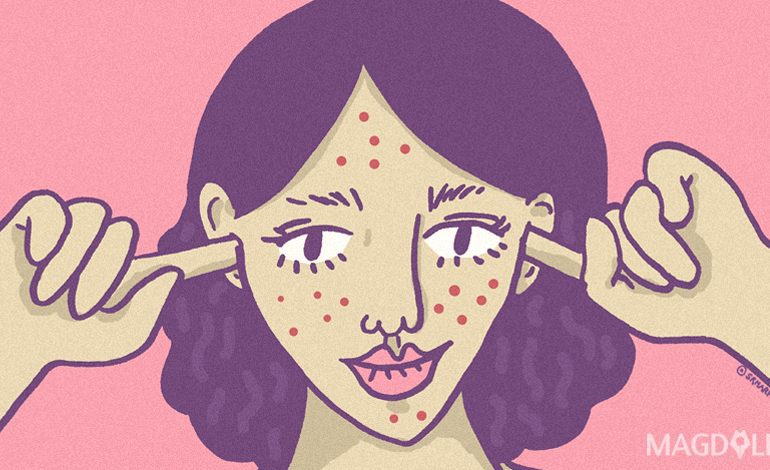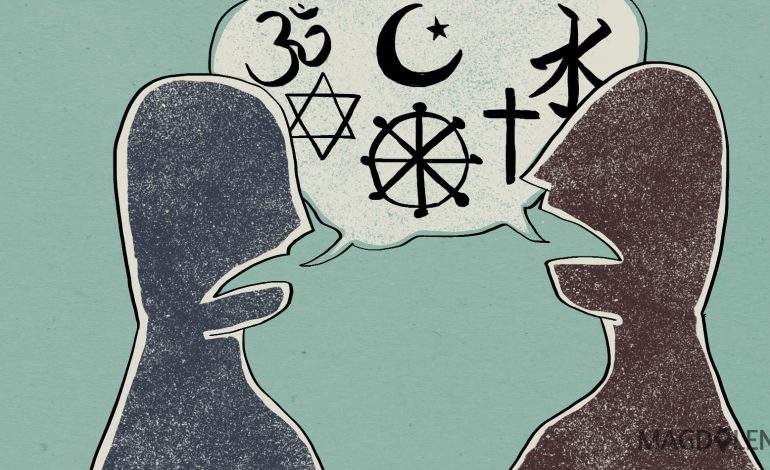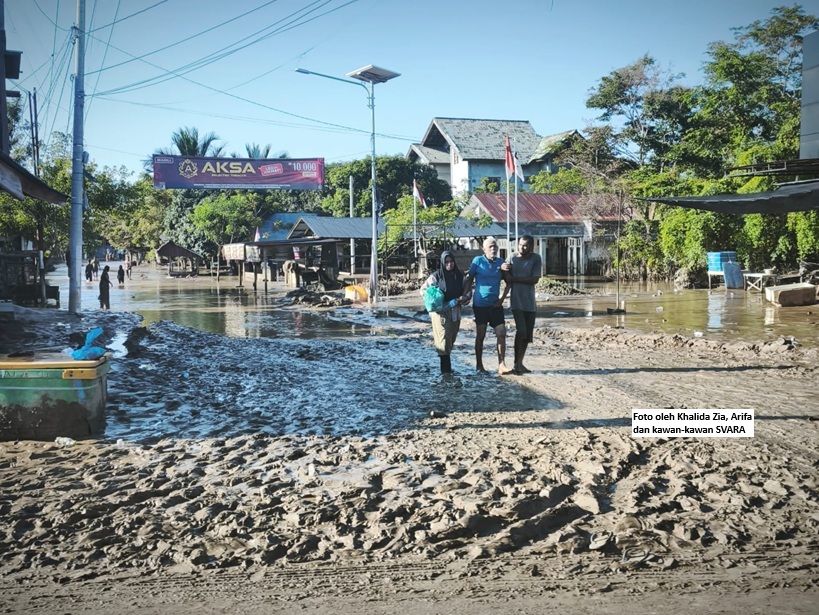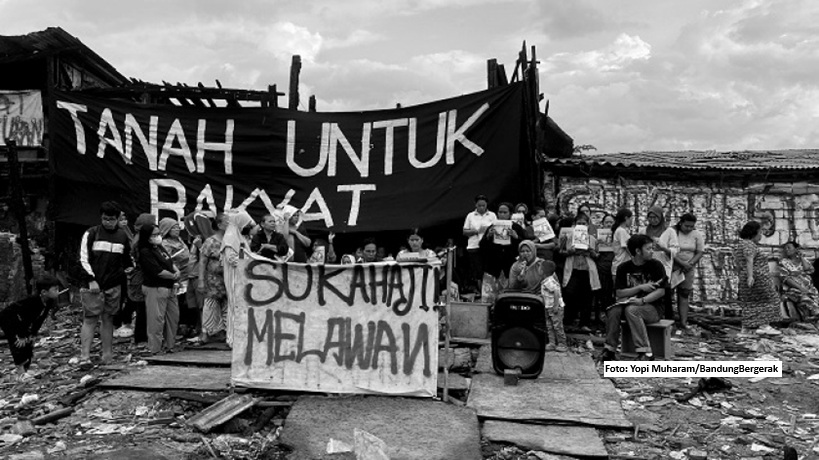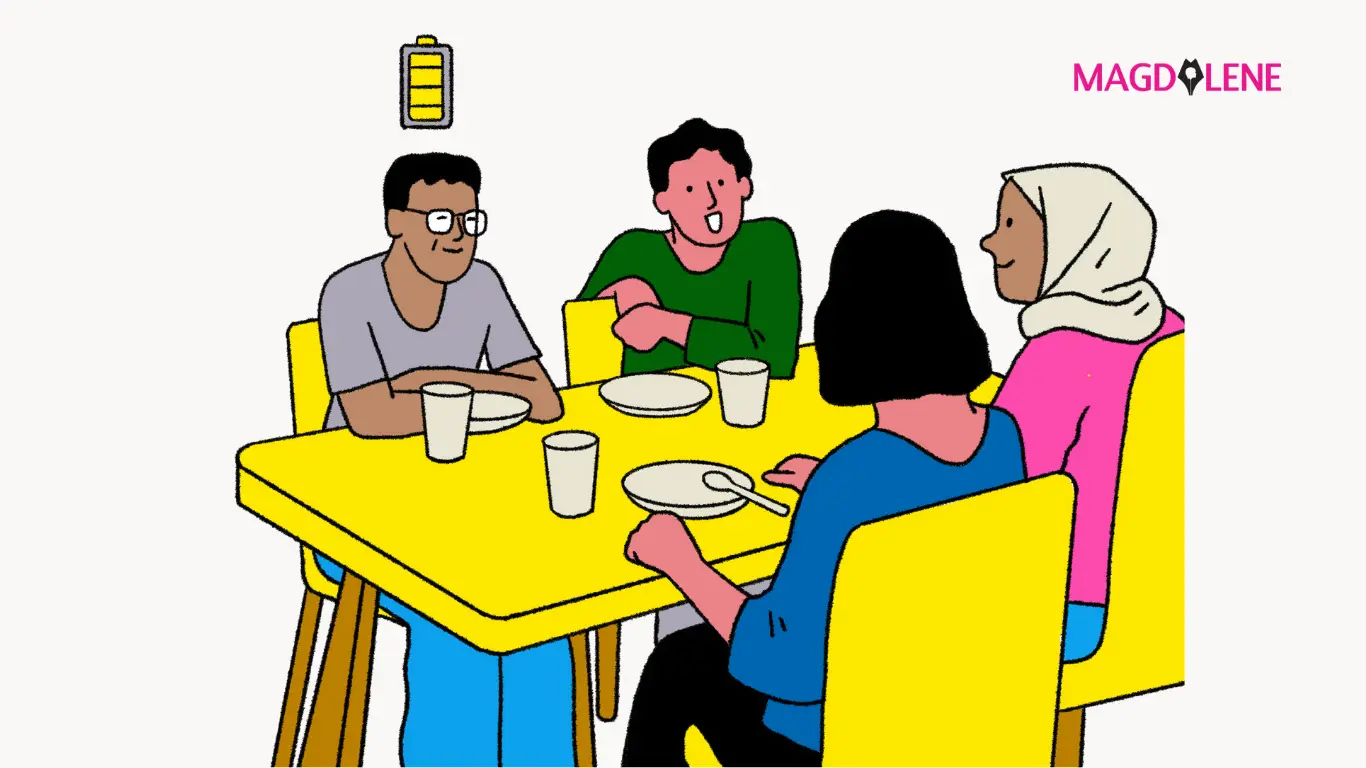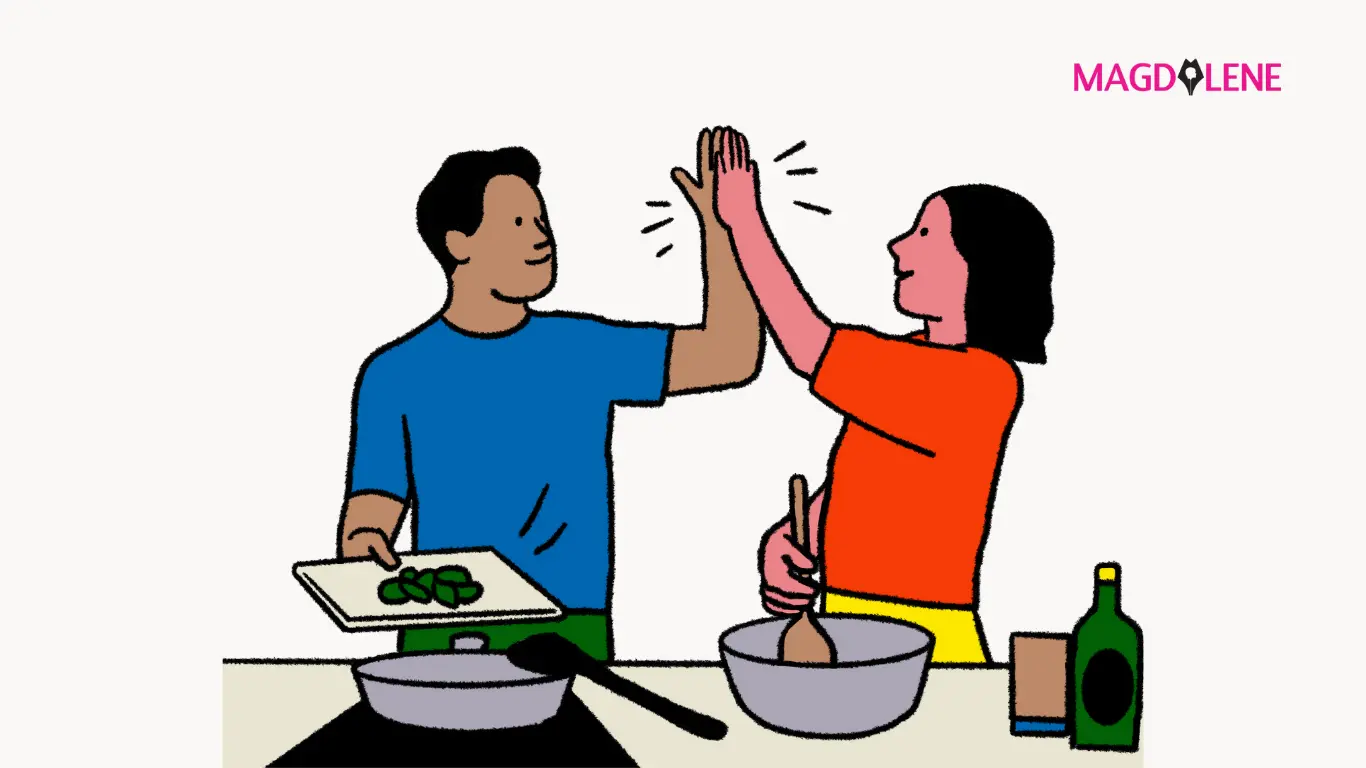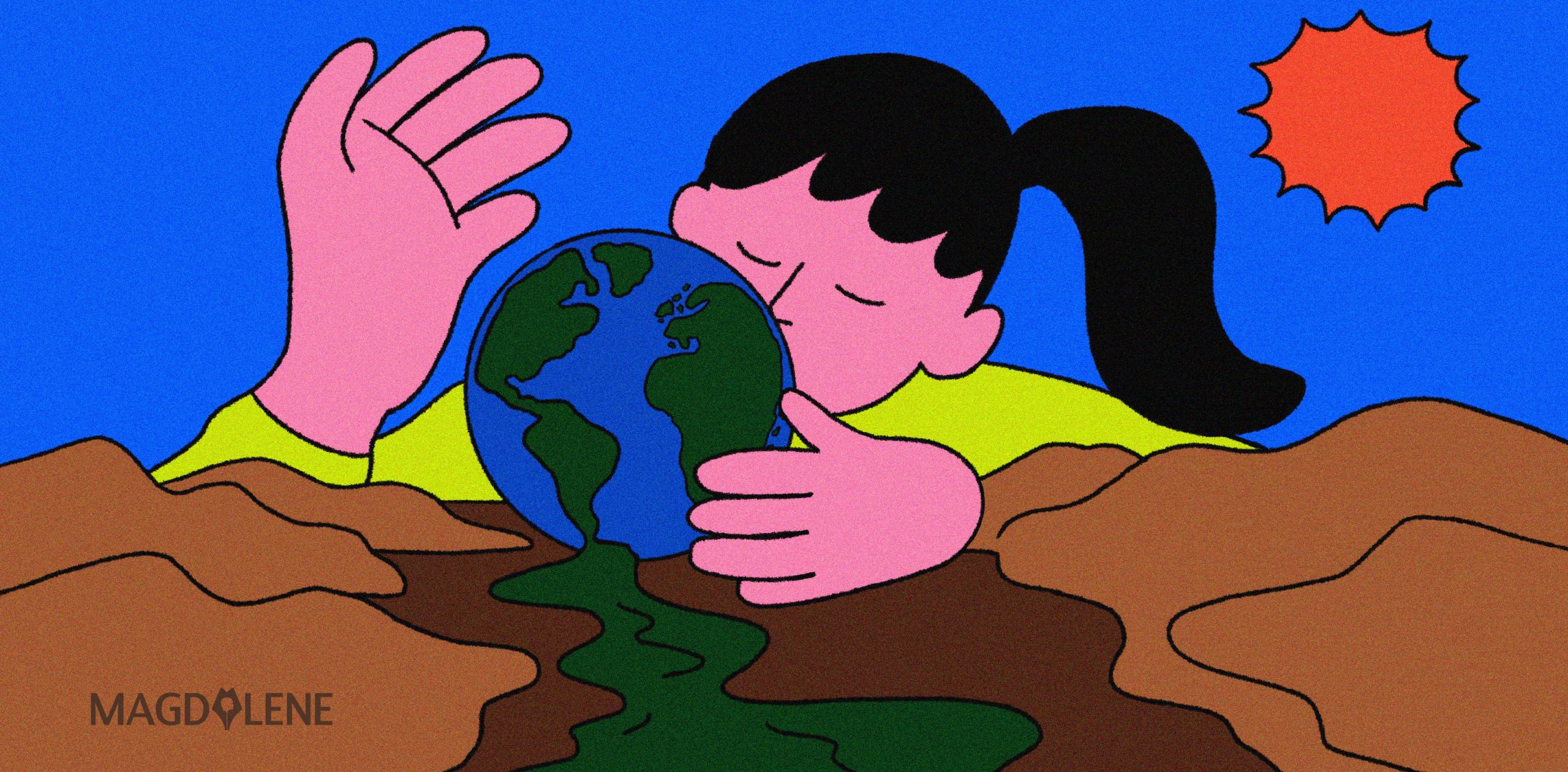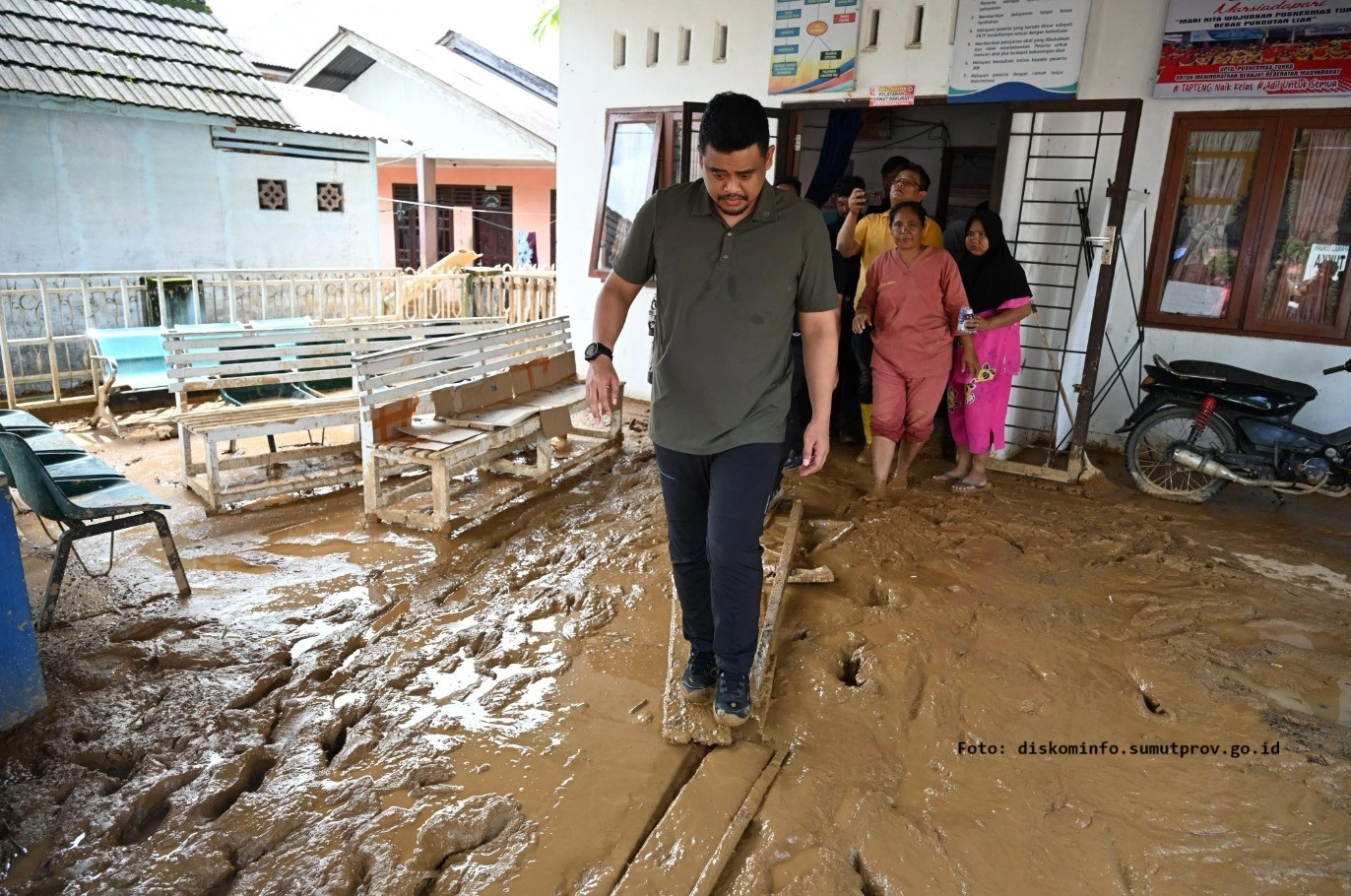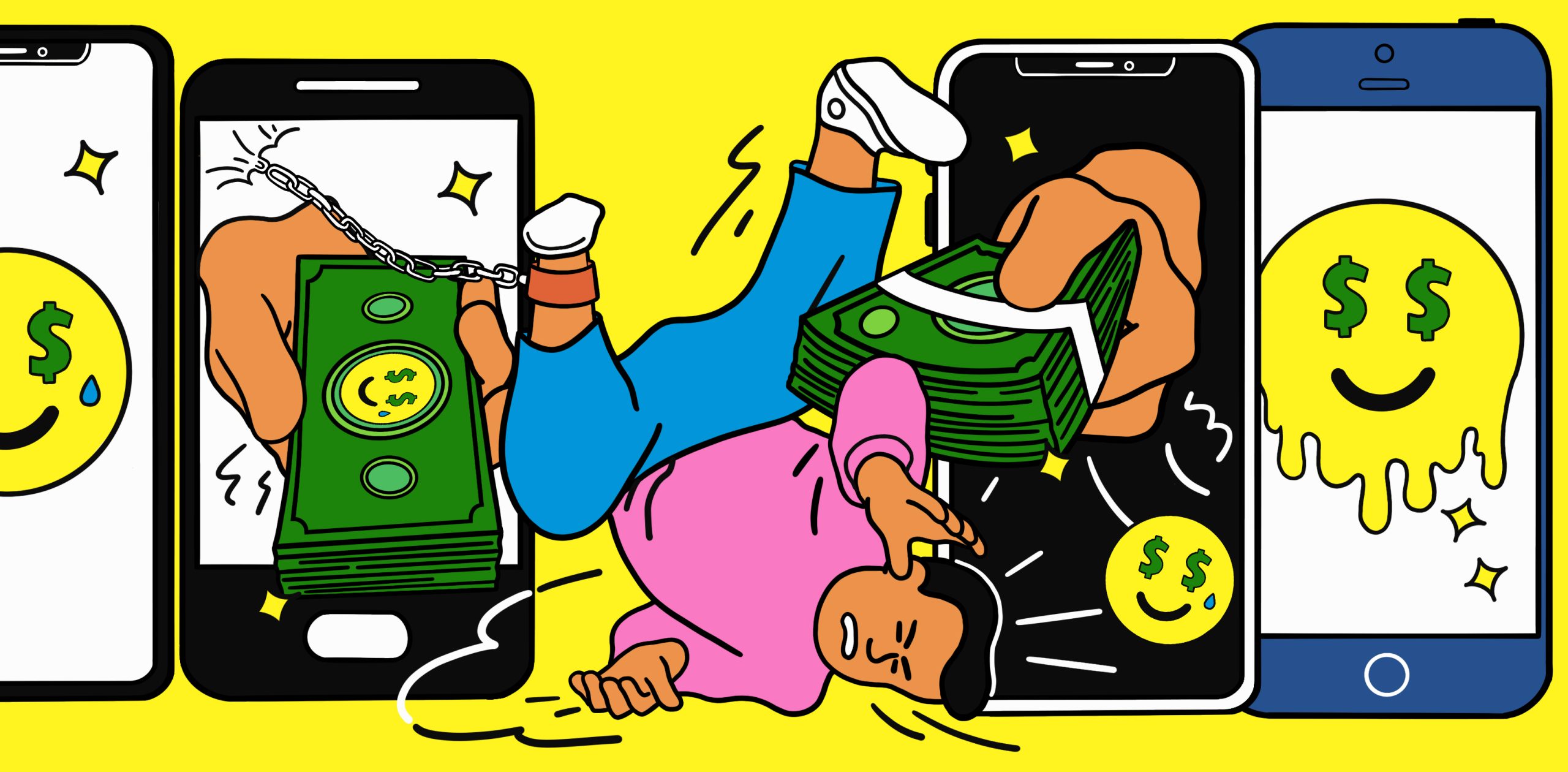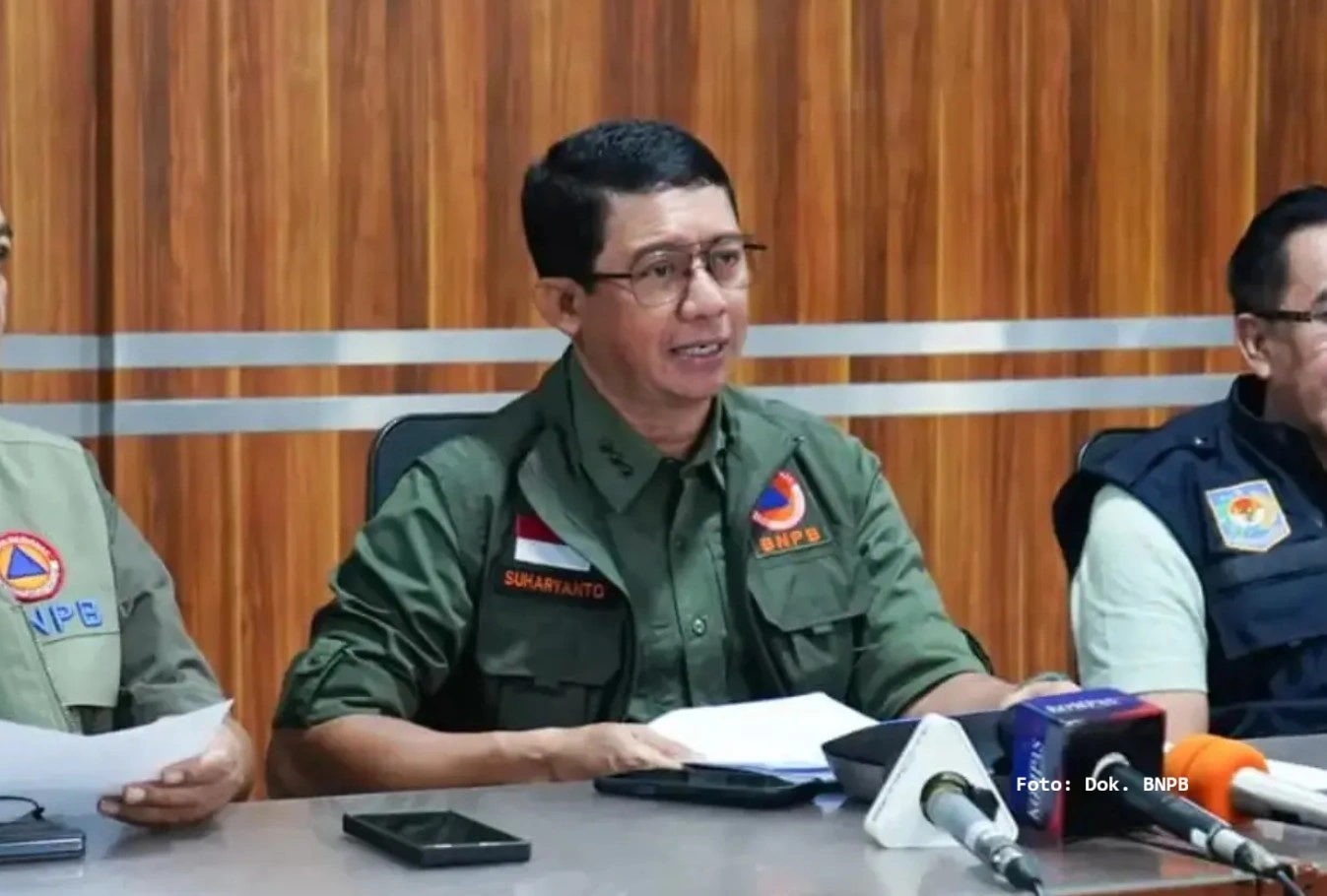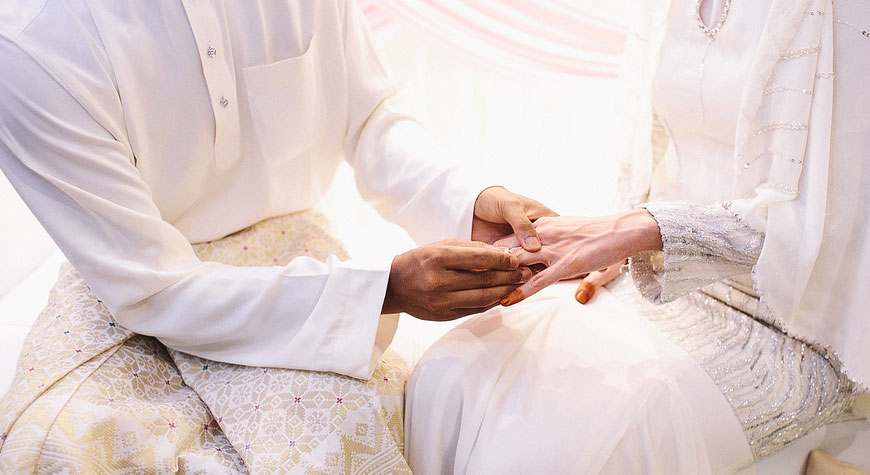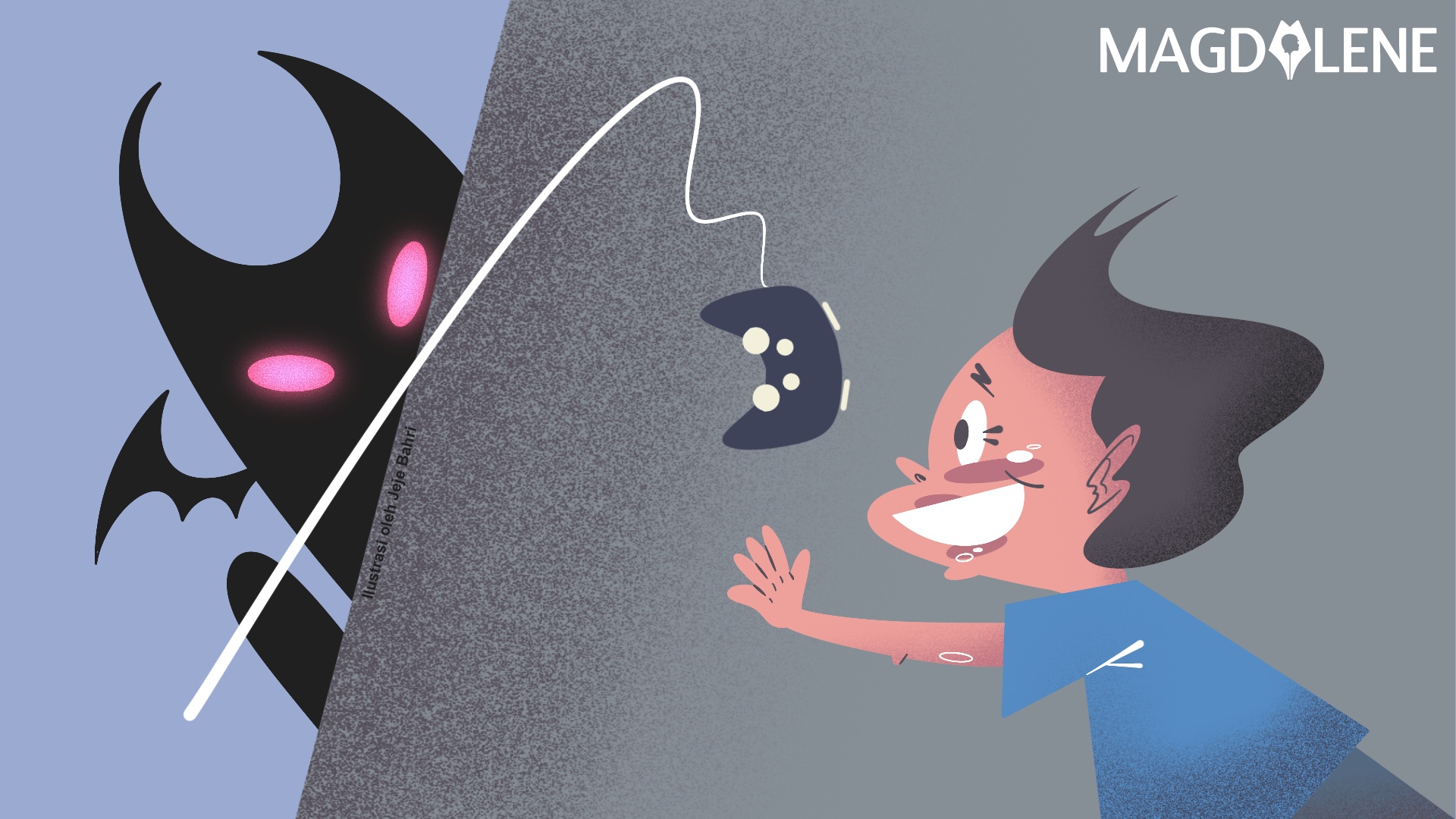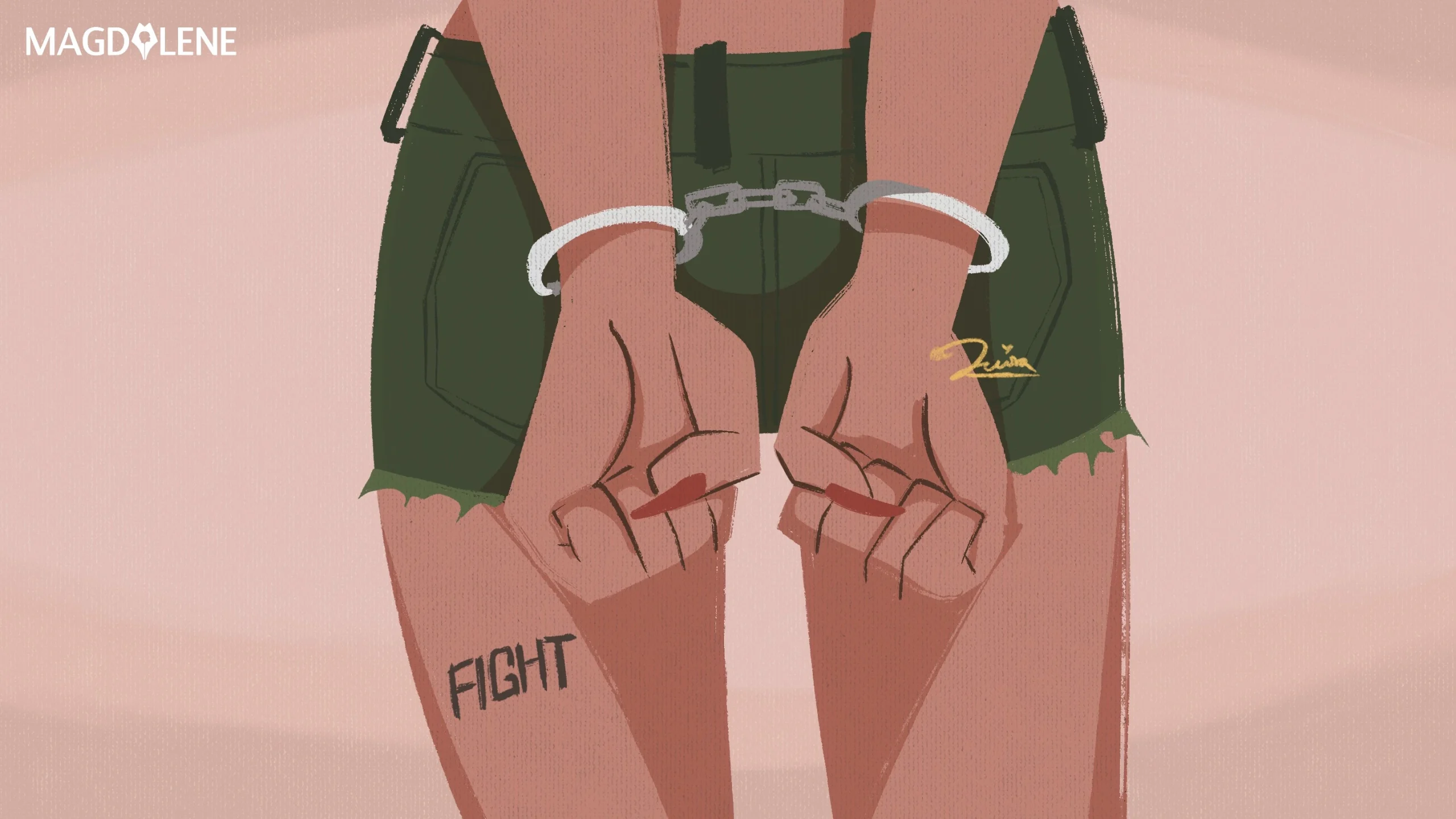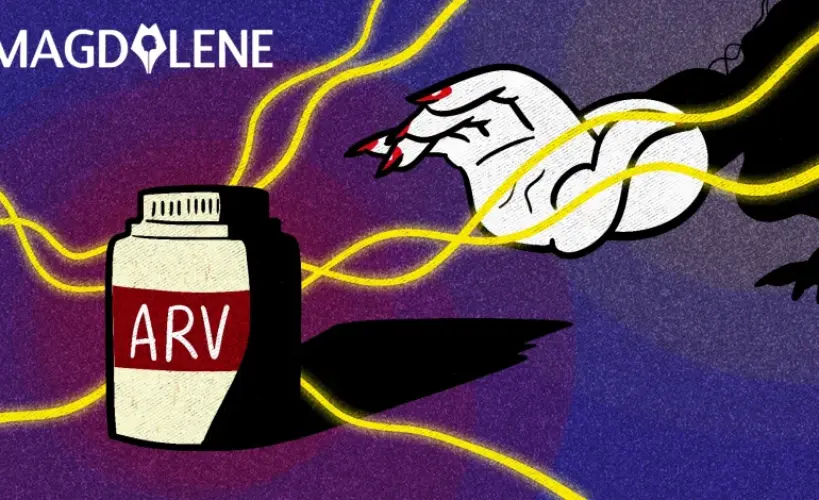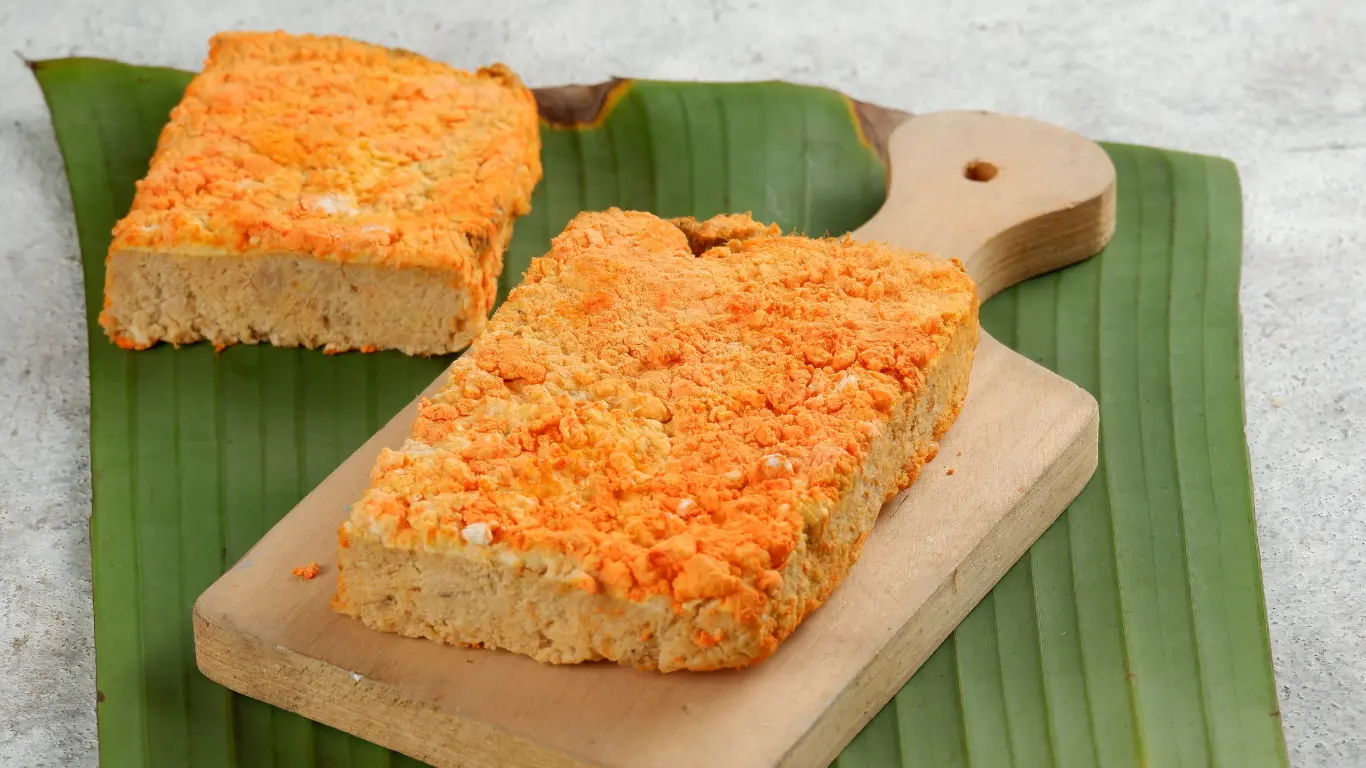Rumah Ramah Rubella – Doctors Slow Down Rubella Campaign
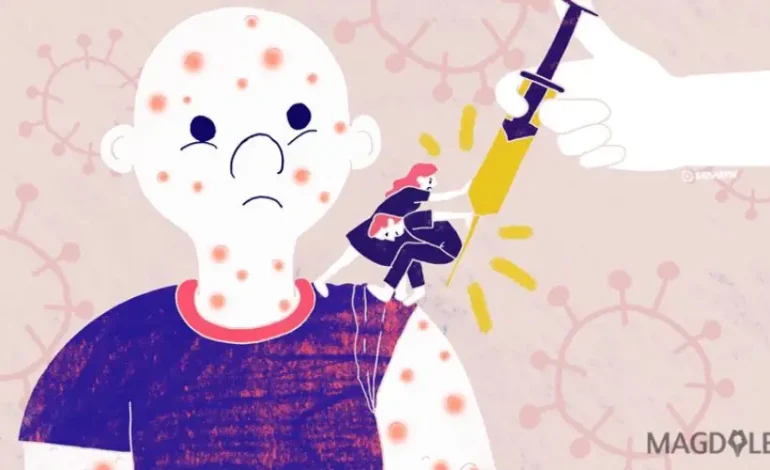
In 2012 Grace Melia Kristanto gave birth to her daughter Aubrey Naiym Kayacinta, or Ubii for short.
“She looks normal when she was born; there were no abnormalities in her physical appearance,” the 30-year-old woman told Magdalene in an interview. “But, gradually, I found out that she had several health conditions.”
First, she learned that Ubii had leaky heart valve when she was 2 months old. Then she started to notice that the baby did not move much, in addition to crying all the time. Doctors told her not to be “too paranoid”. They dismissed her concerns, saying she was just “too young and not ready to have a child.”
“They did not take me seriously, maybe because my facial features, expressions, and posture made me look like I wasn’t grown-up enough. At times, I also felt as if they judged me because I wore sleeveless clothes that showed my tattoos,” Grace explained.
When Ubii was 5 months old, she noticed she did not respond to voices. Grace did a simple test by popping a balloon near her, which failed to elicit response from the baby. Despite the doctor’s continued indifference, she begged for hearing tests. The result showed that Ubii has a Profound Hearing Loss or very acute deafness.

Later she visited a neurologists and learned that Ubii also has brain calcification, a rare neurological disorder characterized by the presence of abnormal calcium deposits in the area that helps and control movement. A CT Scan showed that Ubii has microcephaly and atrophy (small baby head) that causes intellectual development impairment.
“All the bad news left me questioning, ‘Why? How come?’” She said. “The neurologist asked me if I ever had rubella when I was pregnant. It was the very first time I ever heard the term ‘rubella’ in my life – when Ubii was already 5 months old.”
After screening and blood tests on her and her husband, it was proven that Ubii was Congenital Rubella Syndrome (CRS) positive. The condition has left her with cerebral palsy, with abnormalities in the development of her joints and nerves. She has to constantly consume medication and undergo physiotherapies to help her development.
Anti-Vaxxers and the Halal Issue
Congenital Rubella Syndrome is a condition that affects a developing fetus of a pregnant woman who has contracted the rubella virus. While the symptoms of rubella infection is mild when contracted by adults and kids – mostly fever and rashes – it is particularly dangerous to pregnant women because it affects the condition and development of their fetus.
In Indonesia, the campaign to administer rubella vaccine to children age 9 month to 15 years old has started since last year, with the first phase resulting in 35 million children vaccinated in all six provinces in Java. The second phase of the campaign this year targeting children in all provinces outside of Java has not been as successful, however, due to a number of issues that led to parents’ hesitance to have their children vaccinated.
With fake news traveling faster than accurate ones, the campaign for rubella vaccine has faced challenges posed by misinformation spread on the digital space. Videos addressing rubella vaccine on YouTube were swarmed with anti-vaccine comments. They point at the vaccine as the cause of various fatal medical conditions, from HIV, autism, seizures to deaths – although there are more than enough scientific explanations debunking all the baseless claims.
Communication for Development Specialist for the United Nations Children’s Fund (UNICEF), Rizky Ika Syafitri said the rubella vaccine has gone through numerous testing, making it absolutely safe for usage.
“WHO (World Health Organization) guarantees the safety of this vaccine,” Rizky told Magdalene in an interview. “Our government has done some serious testing to the vaccine as well. You see, this vaccine is definitely not cheap, so they need to make sure that it’s effective for long-term results, as it is an investment for the future of our nation.”
The current goal is to make sure 95 percent children in Indonesia receives rubella vaccination. Only then will all Indonesians be well-protected from the disease.
“We focus on children because they are the key factor in the spreading of this virus,” she added.
Pregnant kindergarten and primary school teachers as well as pregnant mothers are the most vulnerable groups to the infection of rubella virus.
“When a child gets sick, teachers and mothers are automatically the people who will be in contact with them. If the sick child is infected with rubella virus and the female teachers and mothers are in their first trimester pregnancy, then it is almost sure that their fetus will suffer from Congenital Rubella Syndrome,” she said.
One factor complicating the rubella vaccine campaign is the issue of whether the vaccine is religiously acceptable by Muslims, as one of its components in processing is pig gelatin, which is used in vaccines as a stabilizer to ensure that they remain safe and effective during storage. The Indonesian Ulema Council (MUI) had initially refused to endorse the vaccine, because the government had not inquired MUI to test it for the “halal” certification.
Many people have since refused the vaccine on the ground that it has not received the halal certification by the MUI. Comments on social media platforms reflect the impact of MUI’s stance on this. Many people accuse the government of trying to poison or inject them with HIV virus – or some other conspiracy theories, many with political overtones.
In reality, of the various existing vaccines in Indonesia, only the meningitis and flu vaccines have received the halal certificate. Also, the vaccine, which is made by Serum Institute of India (SII), has been used in over 140 countries, including Islamic countries, such as Saudi Arabia, Turkey, and Malaysia.
Last month MUI finally released a decree saying that the measles-rubella immunization is “mubah” or permitted, noting that it is urgently needed as long as a halal vaccine has not been invented yet. But despite MUI’s softening stance and endorsement, the vaccination program still faces challenges outside of Java. UNICEF noted that by mid-September, only 47 percent of the 32 million children has been received the rubella vaccination, much lower than the targeted 75 percent. In Aceh, the only Indonesian province that adopts the Sharia, out of 1.5 million children, only 100,000 have been vaccinated by the middle of September.
An unvaccinated child puts many people at risk, as the highly contagious rubella virus can be spread through droplets produced by talking, sneezing, or coughing.
“One child is not protected from rubella; twelve other people are in jeopardy,” Rizky added.
Resistance to the vaccine can potentially cause an epidemic, which escalates the problem from a health issue to a national defense issue.
“We could be alienated from international dialogues, we won’t be able to send workers to work abroad, we won’t be allowed to host prestigious international sports competition like the Asian Games this year,” said Rizky.
She added that this year’s vaccination program cannot fail as it decides whether or not rubella immunization will be incorporated in a yearly program.
“I should say that Indonesia had been quite late in giving rubella vaccine. Many other countries are already immune to this virus. Even, East Timor is already 100 percent protected from rubella,” she said, adding that allocating budget to provide free immunization for at least 70 million children is a big deal.
A Support Group for Parents
Her child’s plight has driven Grace to found Rumah Ramah Rubella, an online support group for parents of children with CRS.
“When I initiated Rumah Ramah Rubella online support group, I simply needed a space where I can tell my experience parenting a kid with special needs to parents who share similar struggle,” she said.
“When I realized my daughter is a child with special needs, I felt so alone, so lost, so confused, and scared. I didn’t know how to deal with it. I wanted to pour my heart out, but I felt like my friends would not understand my struggle as none of them experienced what I experienced.”
She started blogging, and it was read by many people that she got invited to a national television channel to talk about her experience. Mothers whose children also need special care contacted her on social media, and that was when she decided to found Rumah Ramah Rubella.
The main platform of Rumah Ramah Rubella is online—through Facebook Group. Members do most of their interaction there, although it also has Instagram and YouTube channels. There are also Whatsapp chat groups for people based in Jakarta, Bandung, Kalimantan, Jogyakarta, Malang and Semarang. Members of these groups include parents, therapists, health studies students and teachers. They would arrange casual gatherings occasionally.
The platform is aimed to help parents going through difficult times handling children with special needs.
“Based on my and my friends’ experiences, many factors contributing to the rubella disease are still not known in our society. Before the hype of MR immunization, never once did the medical workers mention the word ‘rubella’ to me. I am educated and I live in a city in Java, yet I did not know about it. What about those living in remote areas?” she said.
Grace added that it also seems as if the government did not take the threat of rubella seriously as there are hardly any data on babies born with CRS. And in addition, many in the medical profession continue to underestimate the threat of rubella.
“Even some of my friends who have realized the danger of rubella and requested blood test before marriage was rejected by doctors, saying that ‘it is not necessary to do tests’,” she said, adding that the only mandatory vaccine for the about to-be bride and groom is Tetanus Titoid (TT) vaccine.
To those who refuse to vaccinate their children, she said: “When it comes to vaccine I refuse to understand. It will not only harm their own children but also other people who come in contact with them,” she said. “Don’t be selfish, and please, please read from credible sources.”
Rizky of UNICEF reminds people that rubella vaccination is a child’s right that should be every parent’s priority, and immunization is a preventive action to ensure a healthy generation of children.
“Not just the government, but society is also responsible in ensuring the children’s right to be healthy is met,” she added.
Check out this feminist website in India.

